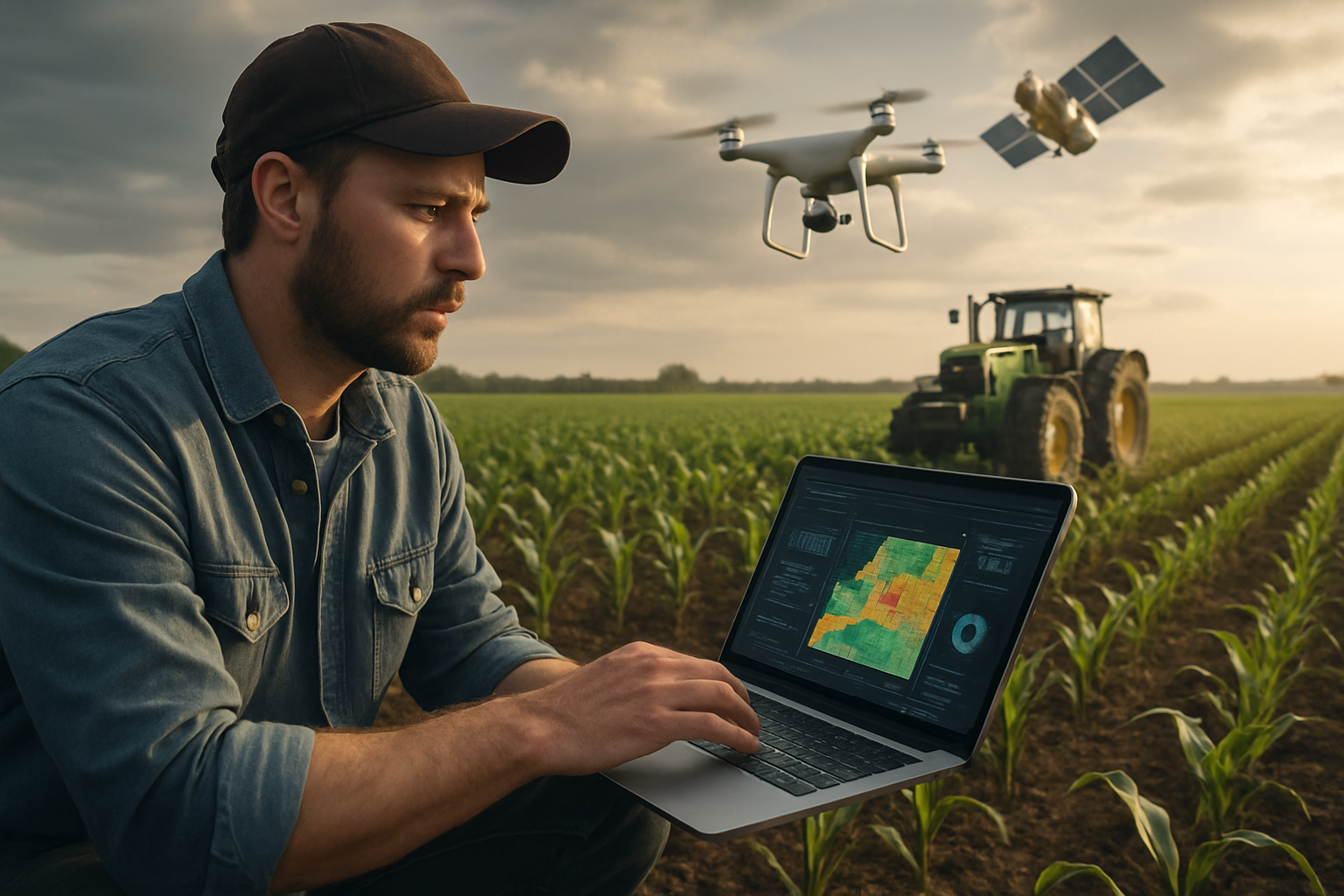The Emerging Trend of Precision Agriculture Investing
As technology continues to reshape various sectors, the agricultural industry is experiencing a significant transformation. Precision agriculture, a data-driven approach to farming, is gaining traction among investors seeking to capitalize on the future of food production. This innovative field combines cutting-edge technologies with traditional farming practices to optimize crop yields, reduce waste, and increase profitability.

The Evolution of Precision Agriculture
Precision agriculture has its roots in the late 1980s when GPS technology first became available for civilian use. Initially, farmers used GPS to guide tractors and create more accurate field maps. However, the concept has since evolved dramatically, incorporating a wide range of technologies and data-driven approaches.
Today, precision agriculture encompasses various practices, including:
-
Satellite and drone imagery for crop monitoring
-
Soil sensors for measuring moisture and nutrient levels
-
Variable rate technology for applying fertilizers and pesticides
-
Automated irrigation systems
-
AI and machine learning for predictive analytics
These technologies work together to create a more efficient and sustainable farming ecosystem, addressing many of the challenges faced by traditional agriculture.
The Investment Landscape
The precision agriculture market is growing rapidly, with some estimates projecting it to reach $12.9 billion by 2027. This growth is driven by several factors, including increasing global food demand, climate change concerns, and the need for more sustainable farming practices.
Investors have several options when it comes to gaining exposure to this sector:
-
Publicly traded companies specializing in precision agriculture technologies
-
Agricultural technology (AgTech) startups
-
Traditional agriculture companies investing heavily in precision farming
-
Exchange-traded funds (ETFs) focused on agricultural innovation
As with any emerging sector, it’s important for investors to conduct thorough research and understand the risks associated with these investments.
Impact on Traditional Agriculture
The adoption of precision agriculture is having a profound impact on traditional farming practices. By providing farmers with real-time data and insights, these technologies are enabling more informed decision-making and resource allocation.
Some key benefits include:
-
Increased crop yields
-
Reduced use of water, fertilizers, and pesticides
-
Improved soil health and biodiversity
-
Enhanced ability to adapt to changing weather patterns
These improvements not only benefit farmers but also contribute to more sustainable and environmentally friendly food production systems.
Challenges and Considerations
While precision agriculture offers significant potential, there are also challenges that investors should be aware of:
-
High initial costs for implementing new technologies
-
Potential resistance from traditional farmers
-
Data privacy and security concerns
-
The need for reliable internet connectivity in rural areas
-
Regulatory uncertainties surrounding data ownership and usage
Additionally, the rapid pace of technological advancement in this field means that investors must stay informed about the latest developments and potential disruptors.
The Role of Big Data and AI
At the heart of precision agriculture lies the power of big data and artificial intelligence. These technologies enable farmers and investors to make sense of the vast amounts of information collected from various sources, including:
-
Weather data
-
Soil composition analysis
-
Crop yield history
-
Market trends and commodity prices
By analyzing this data, AI algorithms can provide actionable insights, such as optimal planting times, irrigation schedules, and harvest dates. This level of precision not only improves efficiency but also helps mitigate risks associated with unpredictable weather patterns and market fluctuations.
Key Investment Strategies for Precision Agriculture
-
Diversify across different precision agriculture technologies to spread risk
-
Look for companies with strong intellectual property portfolios and proven track records
-
Consider partnering with agricultural experts to better understand the industry dynamics
-
Invest in companies that prioritize data security and privacy
-
Keep an eye on emerging markets where precision agriculture adoption is accelerating
-
Consider the long-term potential of precision agriculture in addressing global food security challenges
As we look to the future of agriculture and food production, precision farming stands out as a promising area for investment. By combining technological innovation with sustainable practices, this sector offers the potential for both financial returns and positive environmental impact. As with any investment, thorough research and a clear understanding of the risks and opportunities are essential. The precision agriculture revolution is just beginning, and savvy investors who recognize its potential early on may be well-positioned to reap the benefits in the years to come.




